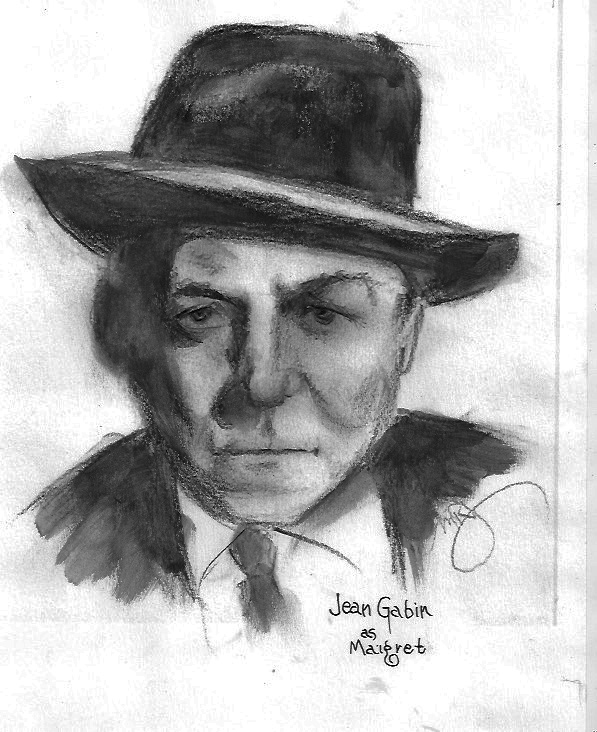The life of Jean Gabin: From punk to national idol
Jean Gabin lives on vibrantly through international film festivals, art houses and television reruns although he died in Paris 42 years ago. Just last week in prime time I watched one of his classic films, “Pépé le Moko”, a story of considerable depth that pops up regularly on television. American author Joseph Harriss rightly calls it “Casablanca for grownups”. Other classics abound – “La Grande Illusion”, “Le Quai des Brumes” “Touchez pas au grisbi”, for example.
Gabin showed the world “what it means to be French”, Harriss writes in the introduction to his fascinating and thoroughly researched new biography “Jean Gabin: The Actor Who was France” (McFarland and Company, Inc.) This is the first full-length account of Gabin’s colorful life in English and is likely to be the book of choice for film scholars and Anglophone French cinema fans for some time to come.
A Paris-based writer with strong reporting credentials and three previous books on France, Harriss brings narrative skill and sweeping historical context to the Gabin saga.
Gabin came to the cinema from a modest start in song-and-dance cabaret work, and went on to appear in 95 movies during a period of tumult in French cultural and political history. His portrayal of police Commissaire Jules Maigret in the television series ranks as the best – a role tackled by many French actors over the years.
Harris weaves the threads of Gabin’s life into a coherent chronological story covering 72 years, from his birth in 1904 to his death in 1976. He avoids the star-struck tone of so many such biographies and lets the story tell itself.
And the story is riveting. Gabin helped define the golden era of French cinema. Film critics compared him to Gary Cooper, Spencer Tracy, James Cagney and Humphrey Bogart, among others. Harriss calls his acting style “instinctive”. (He) “realized the importance of underplaying, realizing how much the camera magnified every gesture and change of expression”. His off-screen love life, including a six-year relationship with Marlene Dietrich, titillated the French public but his film career left a lasting legacy.
This book sails through 20 chapters, probing behind the scenes to reveal Gabin’s life as a rising star in his first movies (chapter 5), escape to America (chapter 11) the German occupation of France, his military years as a tank commander (chapter 16) and his march into the liberation of Paris with the Free French forces, and finally his comeback after a career decline. Each quote, each anecdote, each fact is meticulously annotated in chapter notes, and a seven-page index (another exceptional feature of this book) helps the reader find the gems that make this a valuable contribution to the Gabin annals.
Discussing Gabin’s post-war cinema career, Harriss finds his roles a virtual cross-section of French society -- professions and trades, gangland boss, or police commissioner, businessman or lawyer, judge or president, banker, restaurant chef, truck driver, gynecologist, veterinarian, farmer, ex-Foreign Legionnaire, eccentric bum, or patriarch of one of France’s grandes familles. “
“Switching easily from coveralls to business suits, skirting the law or enforcing it, driving a truck or delivering a baby, buying cheese in a street market … with each succeeding film he became more than ever the actor Frenchmen could identify with.”
French film historians were often in awe of him. “His charisma has excited critics to flights of purple prose,” says Harriss. One described him as having “the nobility of a beautiful animal”. Another wrote, “You only have to see him to want to shake his hand if you are a man, or take him in your arms, if you are a woman”.
Harriss credits him for being able to play anything. He had training in real life, rising from “pugnacious, pigheaded punk from the wrong side of the tracks, to national idol and one of the 20th century’s biggest motion picture stars.”
In his final years, though, Gabin’s wife of 30 years said she had given up trying to understand him. “To her, and to many who knew him, he remained an enigma,” Harris concludes.
Below a drawing of Jean Gabin by the author Michael Johnson.
Should you wish to show your appreciation for this content you can do it by donating directly to the author below.

This article is brought to you by the author who owns the copyright to the text.
Should you want to support the author’s creative work you can use the PayPal “Donate” button below.
Your donation is a transaction between you and the author. The proceeds go directly to the author’s PayPal account in full less PayPal’s commission.
Facts & Arts neither receives information about you, nor of your donation, nor does Facts & Arts receive a commission.
Facts & Arts does not pay the author, nor takes paid by the author, for the posting of the author's material on Facts & Arts. Facts & Arts finances its operations by selling advertising space.


 When composer Morton Feldman first heard Atlas Eclipticalis
When composer Morton Feldman first heard Atlas Eclipticalis